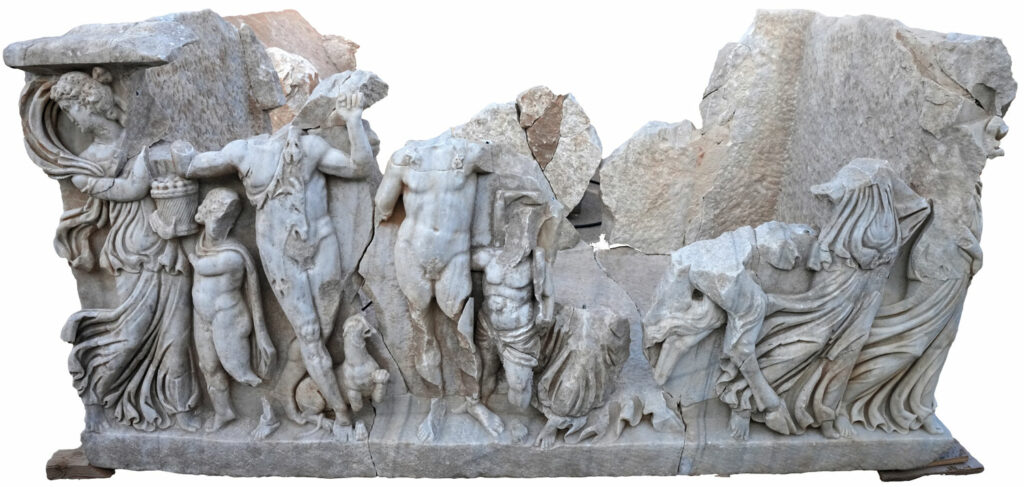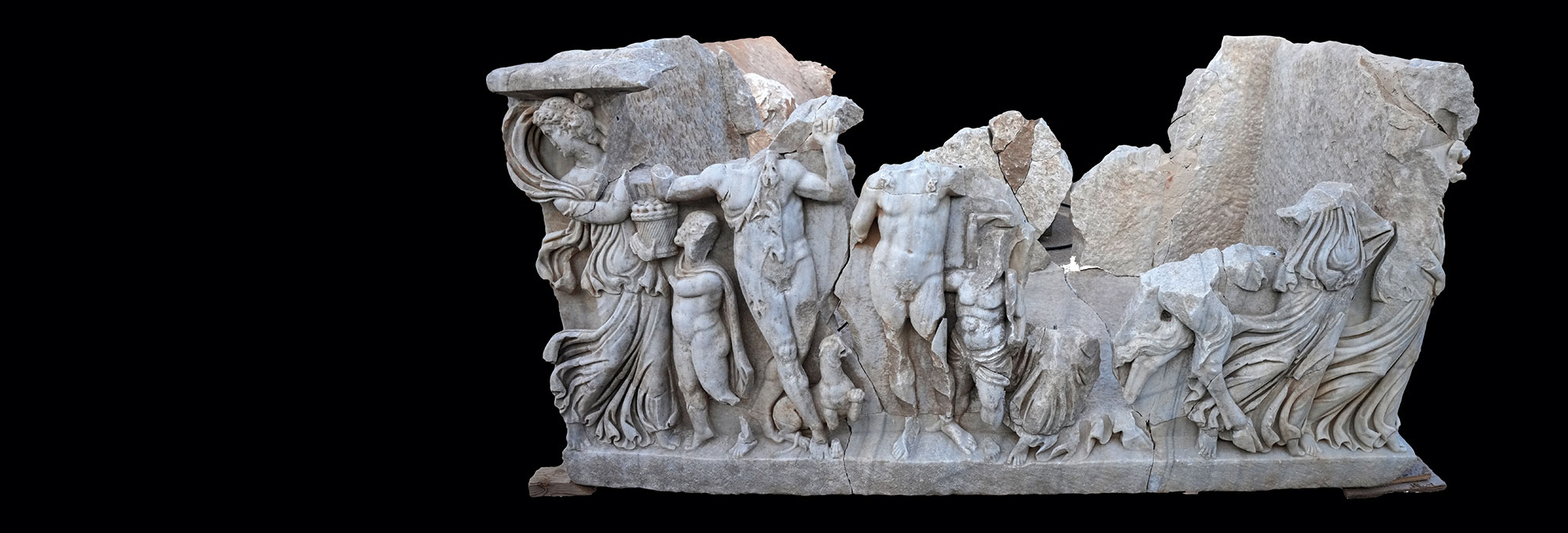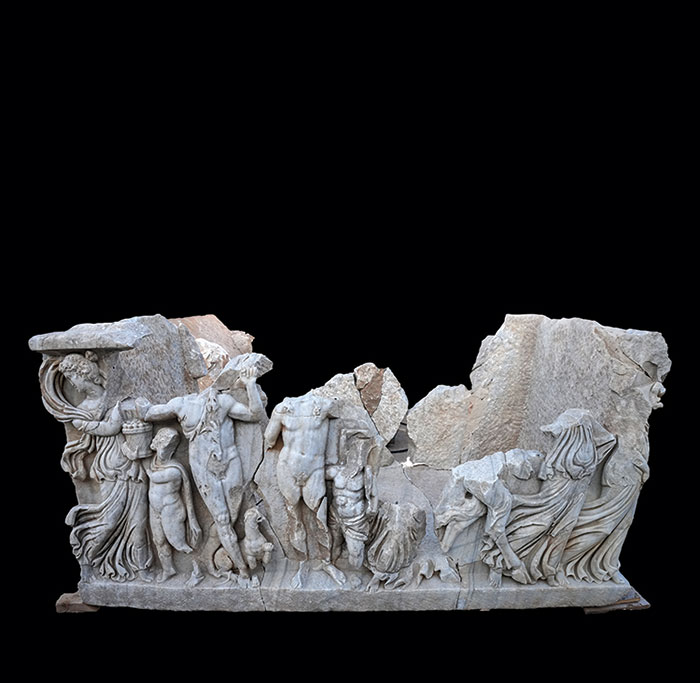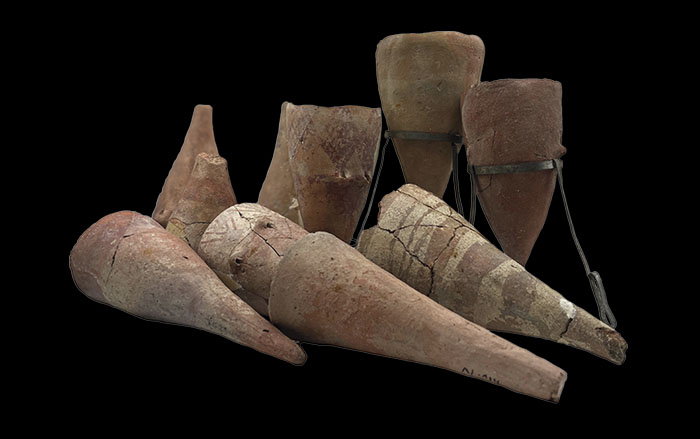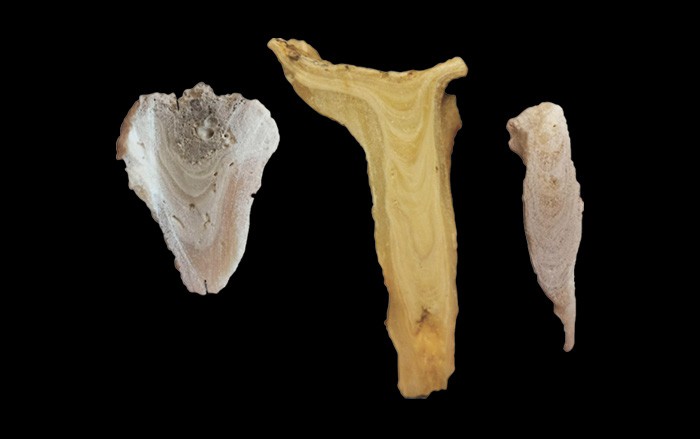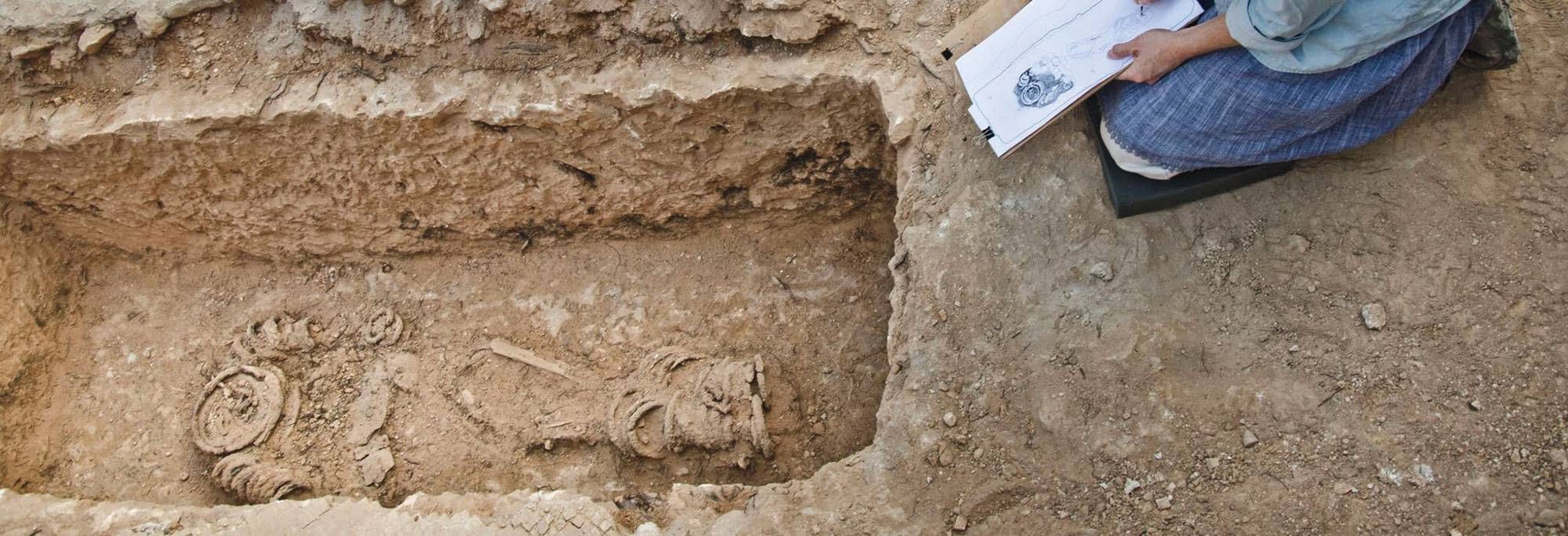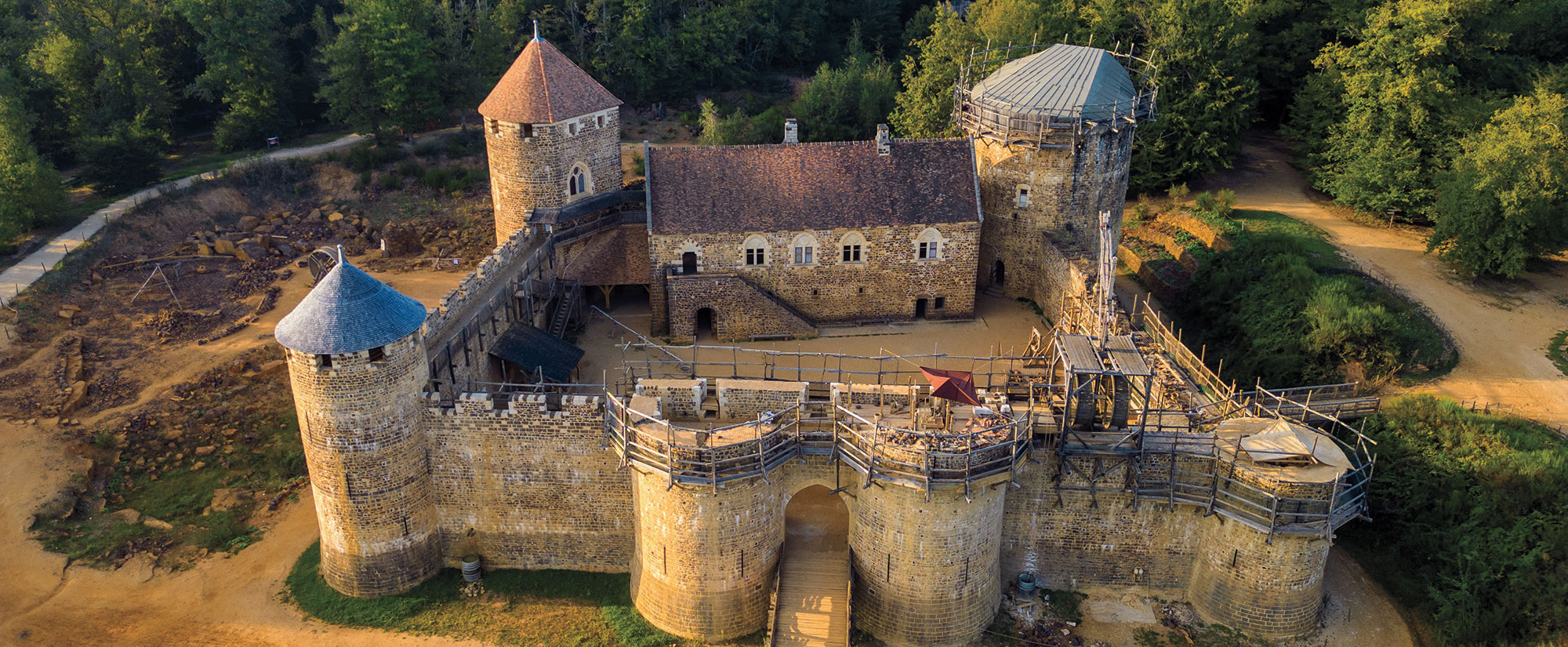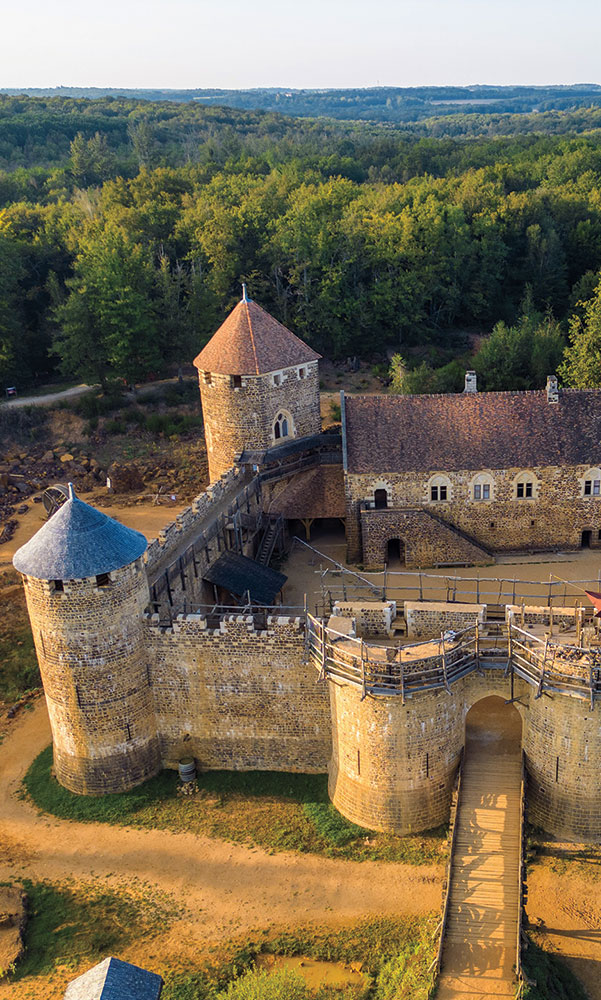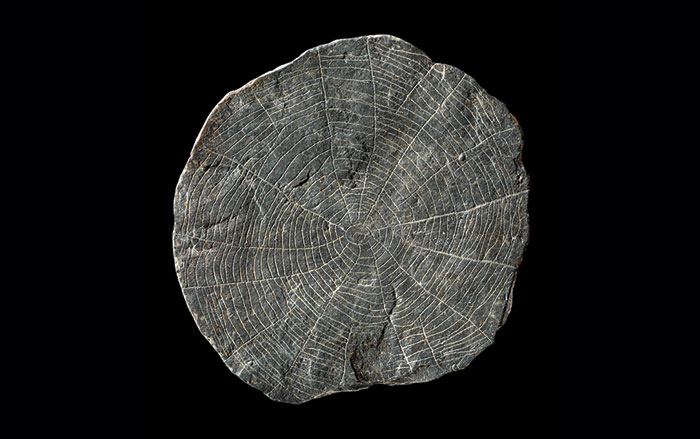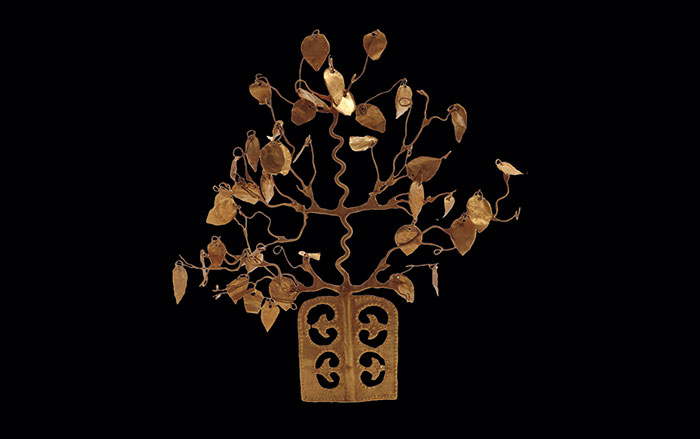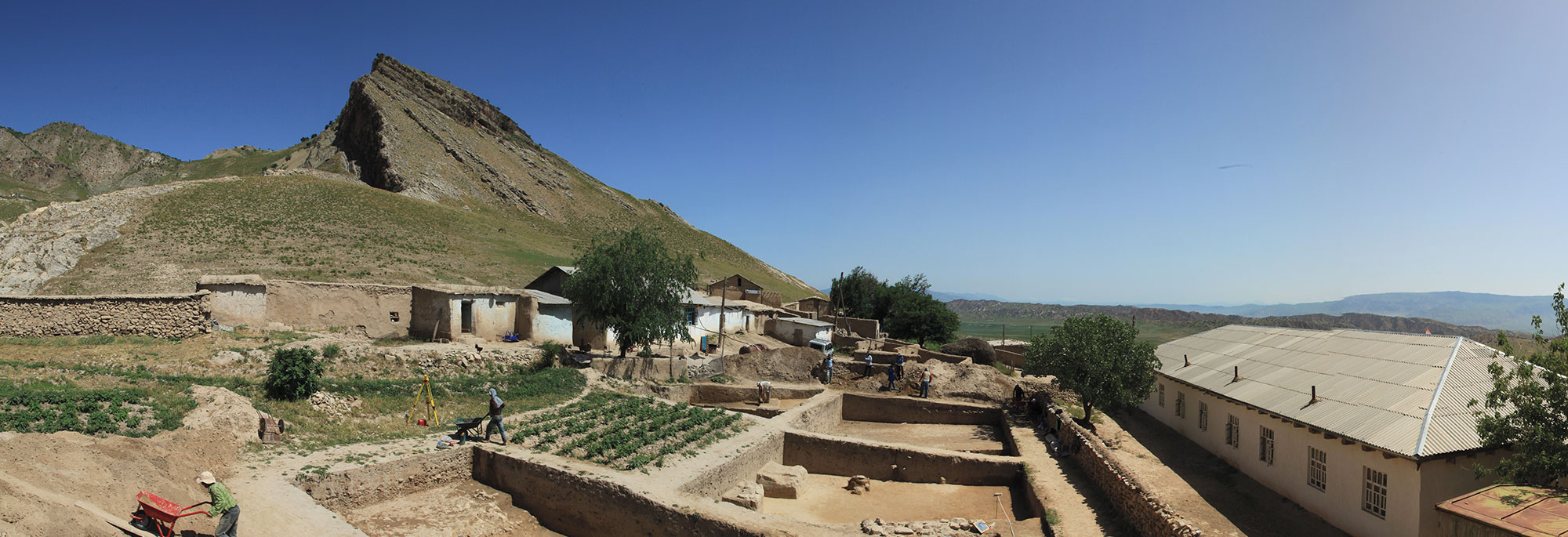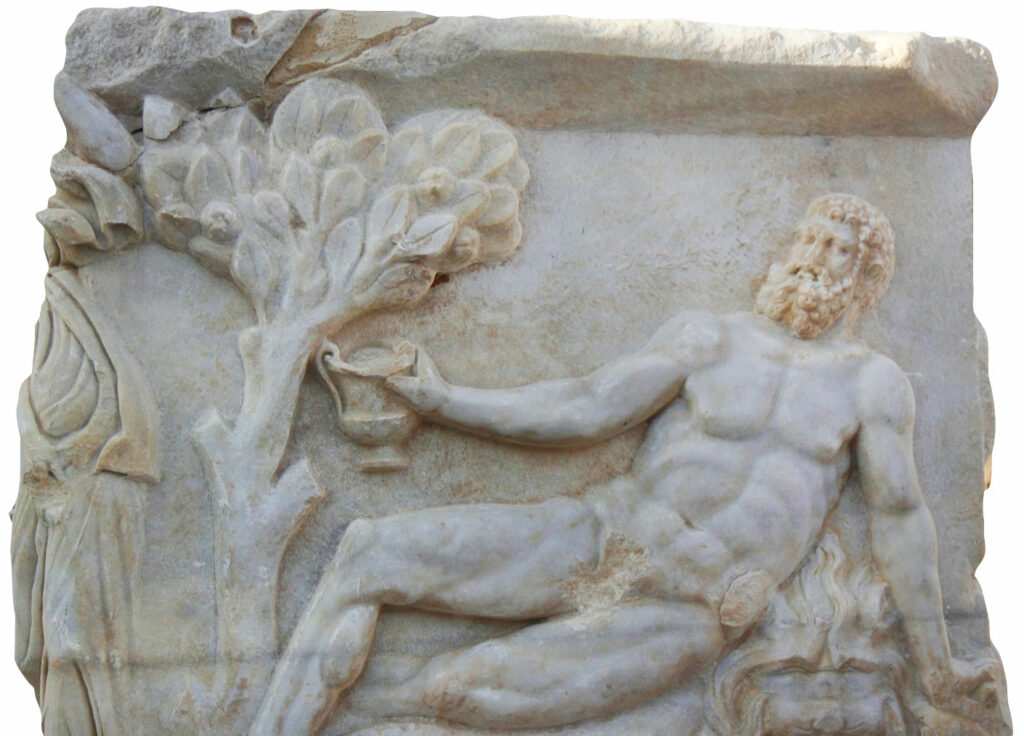
A marble sarcophagus dating to the second or third century a.d. has been discovered in the city of Caesarea on Israel’s Mediterranean coast. It depicts the wine god Dionysus and the hero Hercules engaged in a drinking contest.This scene is a familiar one in Roman art, but this is the first time it has been found on a sarcophagus in the area. The sarcophagus’ four panels include satyrs, the gods Hermes and Pan, a pair of lions, and Dionysus holding a cup in his hand, surrounded by female followers called maenads. Hercules, the contest’s loser, is shown overcome by drink, clutching a cup and collapsing on a lion skin.
According to archaeologist Nohar Shahar of the Israel Antiquities Authority, the figures were meant to accompany the man in the sarcophagus on his final journey. “They’re like a visual parade of the soul detaching from this world and moving on to the next world,” she says. “They’re guiding the deceased to the afterlife with ecstasy, wine, and happiness.” The sarcophagus’ occupant must have been quite wealthy, as such an impressive burial container had to have been imported, most likely from northwestern Turkey. Shahar notes that the selection of this particular scene suggests the dead man and his family were part of a culture of drinking and conversation that was popular in the Roman period.
